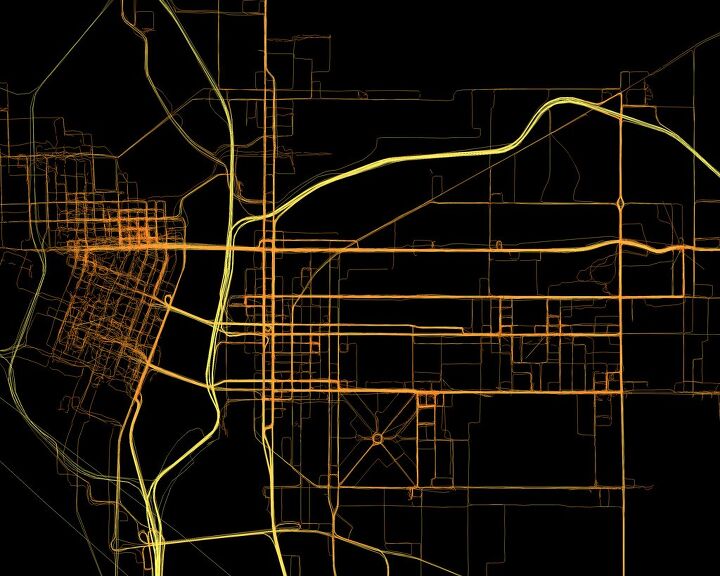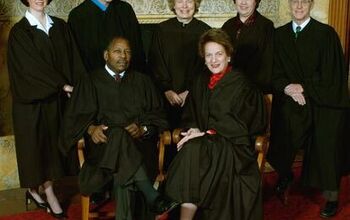Ohio Appeals Court Upholds Warrantless GPS Tracking
The Ohio Court of Appeals ruled on Monday that police do not need to obtain a warrant before attaching a GPS tracking device to anyone’s vehicle. The case arose after paid informants told the Butler County Sheriff’s Office that Sudinia Johnson was involved in selling cocaine. Acting on this information, Detective Mike Hackney attached a pager-sized GPS tracker to the undercarriage of Johnson’s white Chevy van.
The GPS unit uploaded information regarding the van’s location to a website that Hackney regularly checked. This information was used to follow the van from Chicago back to Ohio, with police prepared to make a traffic stop with drug-sniffing canines as soon as Johnson entered Butler County, as long as “they were able to find probable cause to make a stop,” according to Hackney’s testimony.
Johnson allegedly made an improper right-hand turn — one police later admitted was a perfectly safe maneuver — and was pulled over and searched. No drugs were found after two thorough searches, but Johnson admitted to police that “you guys got me.” He then proceeded to admit he was going to sell cocaine that he picked up in Chicago that was in another vehicle. In court, Johnson’s lawyer argued that both the traffic stop and the GPS tracking violated the law. A trial judge did not agree and Johnson was convicted and sentenced to 15 years in jail. The three-judge appellate panel found no fault with this outcome.
“We find that placing the GPS on the van and monitoring its movement did not constitute a search or seizure under either the federal or Ohio Constitution,” Judge Robert A. Hendrickson wrote for the court. “Johnson did not produce any evidence that demonstrated his intention to guard the undercarriage of his van from inspection or manipulation by others…. Supreme Court precedent has established not only that a vehicle’s exterior lacks a reasonable expectation of privacy, but also that one’s travel on public roads does not implicate Fourth Amendment protection against searches and seizures.”
Last week, however, the US Court of Appeals for the DC Circuit specifically rejected this line of reasoning ( view opinion). The Ohio judges also rejected the contrary rulings of the highest courts in New York, Oregon and Washington state on the grounds that their state constitutions offered greater protections from government intrusion than Ohio’s.
“Essentially, Johnson argues that should law enforcement be permitted to install and monitor GPS devices without first obtaining a warrant, the government has unfettered and instantaneous access to a person’s whereabouts,” Hendrickson wrote. “We do not disagree with Johnson that GPS surveillance could report a person’s location at these or any location. However, Johnson fails to recognize that when a person chooses to drive their vehicle to the minister, psychiatrist, abortion clinic, etc, they are voluntarily letting that fact be known to anyone on the roads, or anyone choosing to follow them, of their intended destination. Law enforcement need not obtain a warrant to observe where a driver chooses to drive on public roads, nor do they need to obtain a warrant to observe via a GPS device where a driver chooses to drive.”
A copy of the decision is available in a 75k PDF file at the source link below.
Ohio v. Johnson (Court of Appeals, State of Ohio, 11/29/2010)
[Courtesy: Thenewspaper.com]
More by The Newspaper
Latest Car Reviews
Read moreLatest Product Reviews
Read moreRecent Comments
- Carson D It will work out exactly the way it did the last time that the UAW organized VW's US manufacturing operations.
- Carson D A friend of mine bought a Cayenne GTS last week. I was amazed how small the back seat is. Did I expect it to offer limousine comfort like a Honda CR-V? I guess not. That it is far more confining and uncomfortable than any 4-door Civic made in the past 18 years was surprising. It reminded me of another friend's Mercedes-Benz CLS550 from a dozen years ago. It seems like a big car, but really it was a 2+2 with the utilitarian appearance of a 4-door sedan. The Cayenne is just an even more utilitarian looking 2+2. I suppose the back seat is bigger than the one in the Porsche my mother drove 30 years ago. The Cayenne's luggage bay is huge, but Porsche's GTs rarely had problems there either.
- Stanley Steamer Oh well, I liked the Legacy. It didn't help that they ruined it's unique style after 2020. It was a classy looking sedan up to that point.
- Jalop1991 https://notthebee.com/article/these-people-wore-stop-signs-to-prank-self-driving-cars-and-this-is-a-trend-i-could-totally-get-behindFull self stopping.
- Lou_BC Summit Racing was wise to pull the parts. It damages their reputation. I've used Summit Racing for Jeep parts that I could not find elsewhere.


































Comments
Join the conversation
Yes, the cops knew they wanted to stop the suspect after tracking him diligently with the GPS, so they waited until he committed a traffic infraction to stop him. Yeah, right. In the olden days, this would have been called a "pretext," and the case thrown out of court. However the courts, in their eagerness to bend over the table and grab their ankles before "law" enforcement, have done away with that concept. Now, it is an "objective" standard. In other words, the cop can lie about the real reason for the stop and wait until someone inevitably commits some traffic infraction to justify the stop. And even if the cop video demonstrates conclusively that the traffic infraction did not occur, the courts will noetheless uphold the stop.
The idea to put tracking devices on cop cars has already been done, and it ended with the guy and his girlfriend going to jail in Phoenix. Apparently it is not a two way street.